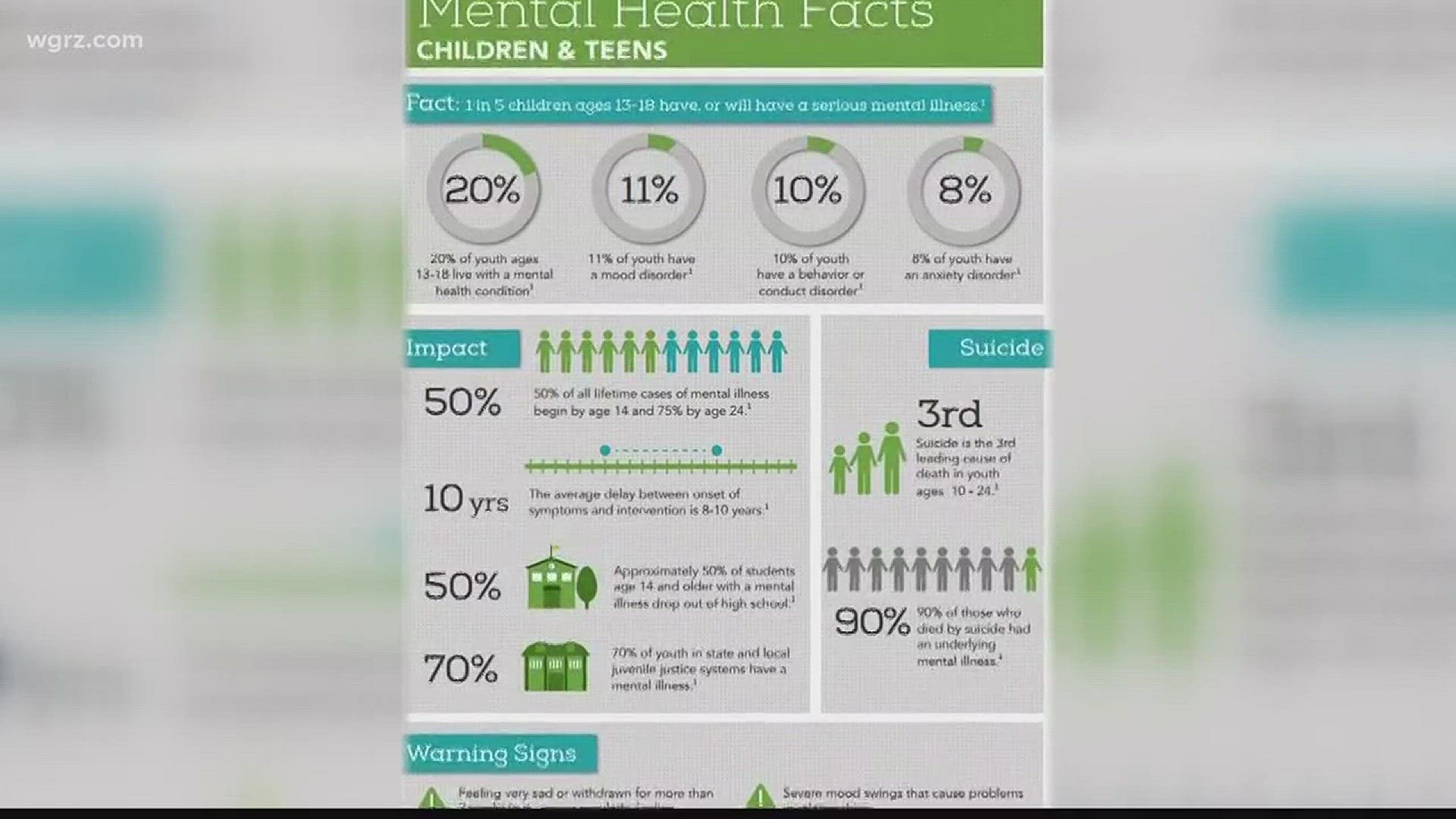HAMBURG, N.Y. - It can be hard to talk about mental health — especially as a teenager.
But it's critically important that the conversations occur at a young age, particularly because mental health conditions often emerge during adolescence or early adulthood. One in five teenagers ages 13 through 18 are living with a mental health illness, according to the National Institute of Mental Health.
Last week, at Hilbert College in Hamburg, a coalition of community partners held a panel discussion about teen anxiety, stress and depression.
The main message: Don't be afraid to ask for help.
Caitlin Neumann, a youth peer mentor at the Mental Health Association of Erie County, is spreading the message of the "Just Tell One" campaign that encourages people to tell another person about their mental health struggles.
"Just telling one, and starting that conversation," Neumann said, "and reaching out to the community support, connecting with people who understand you so you don't feel alone."
Michael Ranney, the commissioner of the Erie County Mental Health Department, said it's also important for parents to recognize the signs and symptoms of mental health conditions in their teenage children. Those symptoms can include feelings of prolonged sadness and other behavioral changes that have an impact on everyday life.
"If someone is struggling for more than a couple of weeks, and it turns into the way of being, they definitely need to be talking to someone and getting some professional advice," Ranney said.
That's especially important because mental health conditions can sometimes lead to suicidal thoughts in teens.
Olivia Retallack, the coordinator of the Suicide Prevention Coalition for Erie County, said heightened awareness in recent years as helped lead to a decrease in teen suicides.
Community organizers and health providers are ready and able to help on a moment's notice, if you need to reach out.
"We respond to it every day. And once an individual is connected to proper resources, their risk for suicide drastically decreases," Retallack said. "And they're able to get the help they need."
This story was reported in partnership with the Erie County Anti-Stigma Coalition. Their website, www.letstalkstigma.org, includes resources and information on where to get help.

